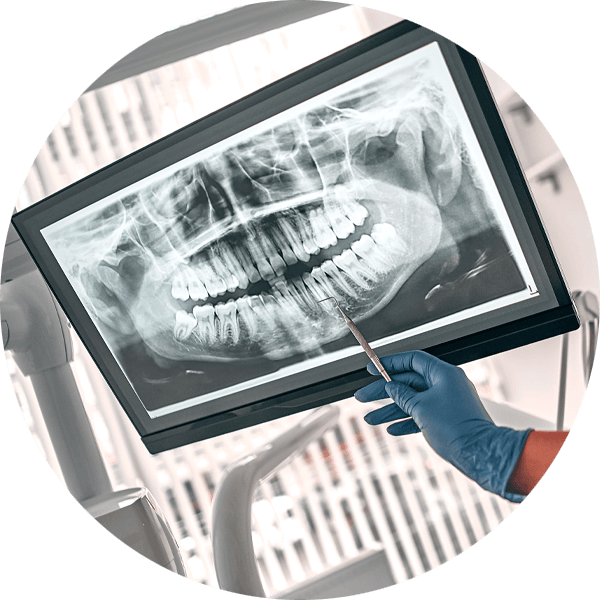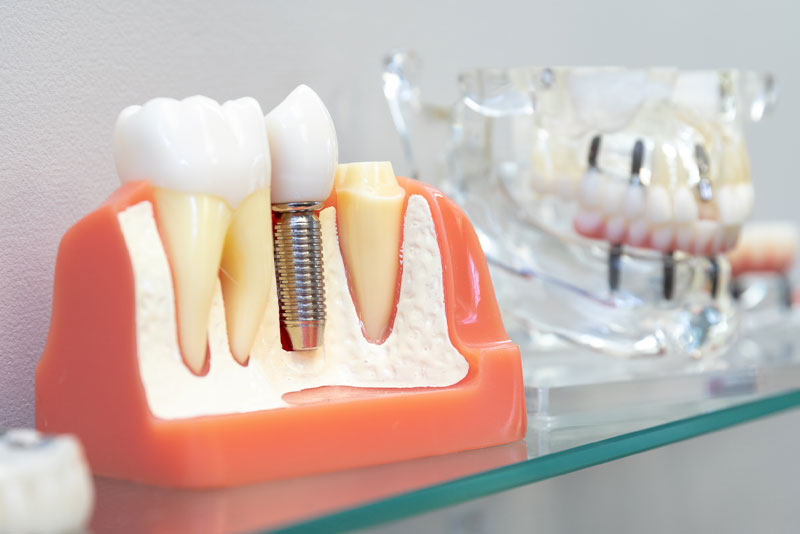

The decision to perform an extraction is typically straightforward when a tooth is impacted by significant decay, severe periodontal disease or a fracture. In addition, impacted wisdom teeth nearly always need to be extracted. Digital X-rays are used to analyze the underlying structures and determine if the tooth can be saved. If there is a pulp infection without a tooth fracture, root canal therapy is a highly successful method for preventing extraction. Extraction of normal teeth may be required for orthodontics, full mouth dental implants or when a primary tooth hasn’t fallen out and is stopping a permanent tooth from erupting. At Smile Rehab Centers, our goal is always to save natural teeth, however, if conservative treatment is ineffective, extraction may be necessary. Extraction of a damaged or abscessed tooth can prevent more serious issues from impacting other teeth, your oral health and even your physical health. Regardless of the reason, Dr. Bay has extensive expertise performing gentle tooth extraction in Southlake, TX. With a local anesthetic and sedation if you need it, tooth extraction will alleviate acute or chronic tooth pain and restore your oral health.
Extraction of a damaged or abscessed tooth can prevent more serious issues from impacting other teeth, your oral health and even your physical health.

During your visit at Smile Rehab Centers, we’ll determine if tooth extraction, symptoms and diagnostic imaging. We accept insurance from several leading insurance providers and offer financing, to make paying for extraction as painless as possible. If we decide tooth extraction is the best option, you’ll schedule this appointment before leaving our office. For uncomplicated tooth extractions, numbing the site with a local anesthetic is usually sufficient, although we also offer several types of sedation. Most patients report feeling slight pressure during the procedure because we use a tool called an elevator to loosen the tooth, followed by a forceps to grasp it, rock and back in forth in the socket and remove it. Rest assured, Dr. Bay gently removes your tooth, being careful not to harm adjacent teeth, underlying bone and surrounding gum tissue. Because our dental team routinely performs tooth extractions, your procedure will be efficient and over before you know it!
Before you leave Smile Rehab Centers, our team will review postoperative instructions with you. It’s important that you follow our recommendations to ensure healing and recovery is smooth and free of complications. A blood clot typically forms over an empty tooth socket during healing. If the blood clot doesn’t form or gets dislodged, this can expose the bone and nerves below the socket and lead to dry socket. While this painful complication only occurs in an estimated 0.5–5.6% of simple extractions, dry socket can impact up to 30% of cases following surgical removal of wisdom teeth. Dry socket isn’t completely avoidable, but you can help prevent it and safeguard a smooth recovery by following our guidelines.


We always strive to preserve a natural tooth, however, if untreatable the best way to relieve your toothache and preserve your health may be a tooth extraction.
We recommend tooth replacement after extraction to prevent adjacent teeth from shifting and to restore smile function and beauty. Although bridges restore function and prevent remaining teeth from shifting and altering your bite, bone loss in the empty socket continues unchecked. Made from durable, strong and natural-looking materials, dental implants are the only permanent tooth replacement solution that prevent bone loss and encourage new bone growth. Bone loss can occur as early as six weeks after extraction, so we suggest scheduling a follow-up visit as soon as your gums have properly healed to discuss your options.
I understand the information disclosed in this form may be subject to re-disclosure and may no longer be protected by HIPAA privacy regulations and the HITECH Act.
